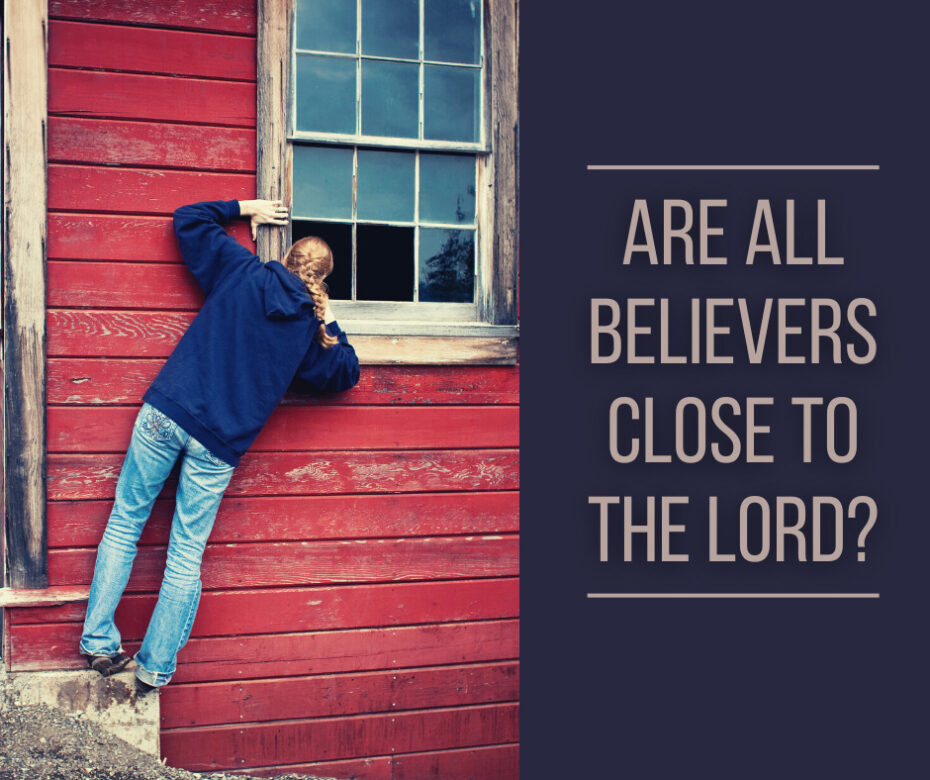Then His brothers and His mother came, and standing outside they sent to Him, calling Him.
In Mark 3:31 there is a graphic, but sad picture. Jesus is in a house with His disciples. This includes more than the twelve apostles. There are so many disciples inside the house with the Lord that He can’t even eat a meal (3:20). Jesus’ family hears about this and worries about His health. They think He’s lost His senses and doesn’t know what He’s doing. They are in another city when they get the news, so–for His own good–they come to rescue Him from the crowds.
Mark records what happened when they arrived. He mentions that the Lord’s brothers and His mother stood outside the house and asked somebody to let Jesus know they wanted to talk to Him. Some suggest that they stood outside the house because of the large crowd. Others have suggested that they wanted Jesus to come outside so that they could speak to Him in private, without the crowd. They didn’t want to embarrass Him when they told Him they thought He was crazy.
Whatever the reason, the important thing Mark wants us to see is that they were not on the inside of the house. The Lord’s disciples were. In the next verse, we see that the disciples are close to the Lord, sitting at His feet. He was teaching them. In a shocking statement, Jesus says that those who are at His feet–those on the inside–are His real relatives. In this context, the will of God is listening to and learning from the Lord, desiring to do what He saysi.
Mark emphasizes the word outside. Immediately after this, he records that the Lord started speaking in parables. He spoke to large crowds (4:1). But it was only to His disciples that He explained the meaning of the parables. Jesus said He would not explain them to those who were outside (4:10-11).
Clearly, there are advantages to being on the inside with the Lord. It means being close to Him and learning from Him.
It would be easy to conclude that being on the outside refers to unbelievers. We know that at this time the brothers of Jesus were not believers (John 7:5). How appropriate that Mark says they were outside the house in which Jesus was teaching. Also, it is a certainty that in the crowd there were unbelievers to whom Jesus did not explain things. Unbelievers cannot have intimacy with the Lord. They are certainly not doing the will of the Father. They, too, were on the outside.
But it would be a mistake to conclude that only unbelievers can be on the “outside.” Mary was a believer, but she is on the outside with the Lord’s brothers. In the crowd, there would have been others who had believed in Him as well. These believers were not willing to pay the price to have fellowship, or intimacy, with the Lord. They did not understand the value of spending time with the Lord and learning from Him.
It is impossible to consider these things and not think of the church at Laodicea, described in Rev 3:13-19. These Christians are not close to the Lord, either. In Rev 3:20 John makes an amazing statement. He reverses things. It is the Lord who is on the outside. The Laodicean believers have removed Him from their lives and desires. They are out of fellowship with Him. They are not learning from Him.
This is a sobering message. As believers, we can be like those on the outside looking in. In that case, we are like the world. Of course, we still have eternal life. But all believers should want to be inside, next to Him. Being on the inside means spending time with the Lord in His Word, in prayer, and with fellow believers. It is then that we are able to learn from Him. That is what a disciple is. There is a difference between being a believer and being a disciple.
If I could continue the illustration that Mark and John use, I would compare it to somebody who is looking for me. If that person were to ask somebody else where I was, wouldn’t it be great if they said, “Oh, he’s inside the house with the Lord”?
___________
i Note from Bob Wilkin: Alternately, doing the will of God in this context refers to believing in His Son (cf. Matt 7:21 and John 6:39-40, both of which use the related expression “the will of the Father”). To be Jesus’ brother or sister or mother (that is, part of His family) requires that we believe in Him (cf. John 1:12-13).


